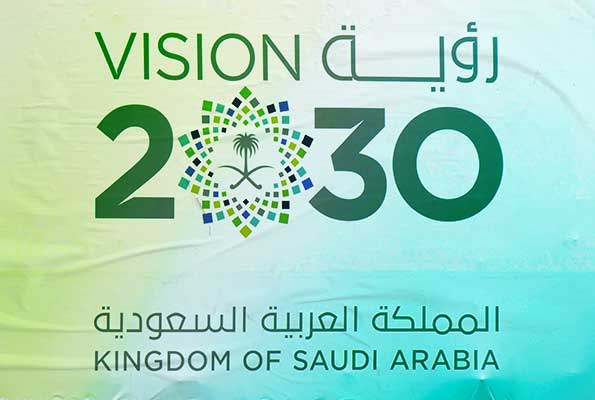The world is paying attention to Saudi Arabia’s efforts to diversify its economy away from oil and establish itself as a digital centre, under the Kingdom’s ambitious ‘Vision 2030’ agenda. The nation has undergone a total shift in the last five years, ending its long association with a repressive rule that prevented women from working and discouraged foreign investment.
Abu Dhabi’s Wealth & Dubai’s Vision
The core of the kingdom’s Vision 2030 is the Public Investment Fund (PIF).
The fund plans to invest more than USD 40 billion to help the region’s economy grow through 2025, with a focus on 13 key domestic sectors, and double the value of its assets to over USD 1.07 trillion. The fund has already established more than 30 new firms, more than 331,000 new jobs in Saudi Arabia, and more than 10 new sectors.
Saudi Arabia, the United Arab Emirates, and Qatar all have prominent positions on the list of emerging market trends, and numerous founders at various meetings and conferences agree that Riyadh is well on its way to replacing Dubai.
Among those who believe that the region is moving beyond repeating best practices to adding next practices is Randeep Sudan, a former Practice Manager for Information and Communication Technologies at the World Bank stationed in Washington, DC.
“Among the best examples of how to change the level of interest in this region is Saudi Arabia, which has implemented all of these reforms. Additionally, I believe there is some competition in the sense that Dubai and the United Arab Emirates are both attempting to advance,” he informed the media.
Financial Commitments To A Diverse Economy
Two interesting changes the area has been making recently are the NEOM city and the Line. The rating outlook for six Saudi corporates, including PIF, has moved from stable to positive according to credit rating agency Moody’s.
This shift in rating is consistent with several Saudi Arabian efforts, investments, and changes, changes that are especially crucial for PIF. The quality of the investment portfolio and assets under management of the fund, as well as the sustainable growth of the returns of the fund, sector diversity, and investments across sectors locally and internationally, were all taken into consideration for this modification in the rating.
In total, the ‘Biban Conference 2023’ saw over 10 million SAR invested in prizes and hackathons, three million online visits, over 1200 exhibitors, and over 24000 participants who took part in training and consultancy courses.
This came after Saudi Arabia’s Minister of Communications and Information Technology Abdullah bin Amer Al-Swaha said that the country would invest more than USD 9 billion to assist emerging technologies, startups, and digital entrepreneurship in the MENA region at the just-finished LEAP conference.
Oracle invested USD 1.5 billion to develop its business in Saudi Arabia by opening new cloud areas, while Microsoft donated USD 2.1 billion to a hyper-scale cloud in the Kingdom of Saudi Arabia (KSA). According to Saudi Press Agency, Chinese company HUAWEI promised to invest USD 400 million in a cloud area and create a Zoom cloud area there.
‘Vision 2030’, a complex strategy to diversify Saudi Arabia’s economy by emphasizing technology, education, infrastructure, tourism, and recreation, is where it all starts.
Many people were shocked to learn that Saudi Arabia was becoming a digital hub that might compete with Dubai.
Dubai has been the preferred location in the GCC for many years, luring expats, businesses, and talent from all over the world.
Dubai was perfectly positioned to embrace the start-up and technology boom as a true expat city. Saudi Arabia, one of the GCC countries with the greatest population (over 35 million), is now a significant rival to the UAE.
The nation is spending a lot of money on funds, incubators, accelerators, and companies. The fact that women now own 40% of the small and medium-sized firms (SMEs) in the nation underscores the importance of empowering female entrepreneurs. Additionally, the government has allowed for the growth of additional businesses and tourism in the area.
Novel Development Methods
According to Jonathan Ortmans, founder and chairman of the Global Entrepreneurship Network (GEN), “Saudi Arabia has its special style of doing things.”
“They want brands to come in, collaborate, and share. People who fled Saudi Arabia are returning because the country is working to improve technologies and create a startup ecosystem,” Ortmans stated further.
He claimed the country and its rulers “knew exactly what they were doing and were eager and confident to collaborate with others.”
“Many of the nations in the region, particularly Saudi Arabia, have distinct and unambiguous objectives. What helps is when everyone is rowing in the same direction at the same speed and pace,” Ortmans concluded.



